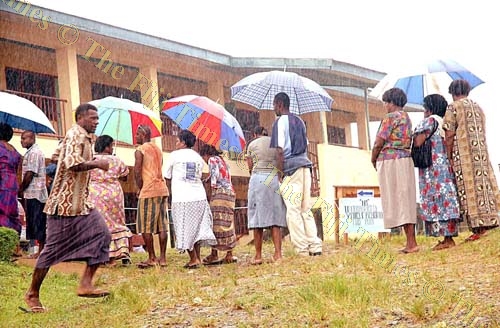AMONG the major provisions of the Political Parties (Registration, Conduct, Funding and Disclosures) Act 2013:
- No public officer can be a party member or hold office. This includes public servants, member of statutory authorities, judges and other judicial officers, members of the Fiji Police Force and the Republic of Fiji Military Forces (RFMF);
- No elected or appointed official of a trade union can be a party member or hold office;
- Any public officer who wants to be a member or office bearer of a political party must resign before doing so;
- Any registered political party must provide details of all assets and expenditure, including donations;
- All political parties must maintain offices in each division and district in Fiji and maintain records of its activities in each office;
- Political parties may only be funded by membership fees and contributions from individuals and all sources of funding must be disclosed;
- No funding may come from foreign governments or non-government organisations;
- No funding can come from companies, nor can they provide services such as transport and accommodation, free or discount advertising or goods and services of any kind;
- All spending on election campaigns must be declared;
- Any political office bearer must make a declaration of income and assets on behalf of themselves, their spouse and any children. This includes total assets – including money and property — in Fiji and abroad — along with their business interests, directorships and gifts. Any liabilities must also be listed;
- Any election candidate must also make a declaration of income and assets in Fiji and abroad on behalf of themselves, their spouses and children and also list their liabilities. All these declarations will be published in the Government Gazette;
- Thirty days before the general election, each political party must list its assets and liabilities and submit it to the Registrar, who will publish the information; and,
- Any political party must keep proper books and these will be audited by a certified auditor and published in the Government Gazette. Political parties are also subject to a Code of Conduct and must strictly adhere to its provisions. These include the requirement that every political party shall:
- Respond to the interests, concerns and needs of the citizens of Fiji;
- Respect and uphold the democratic process as they compete for political power so as to implement their policies;
- Promote consensus building in policy decision-making on issues of national importance;
- Promote national patriotism and national unity;
- Respect, uphold and promote democratic values and principles;
- Respect human rights, human dignity, equity, social justice and non discrimination;
- Respect, uphold and promote good governance, integrity, transparency and accountability; and,
- Not engage in violent, bribery and corruption or advocate racial or religious hatred, incitement or vilification.
SOURCE: FIJIAN ELECTIONS OFFICE


